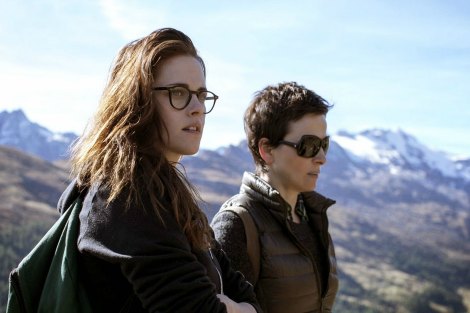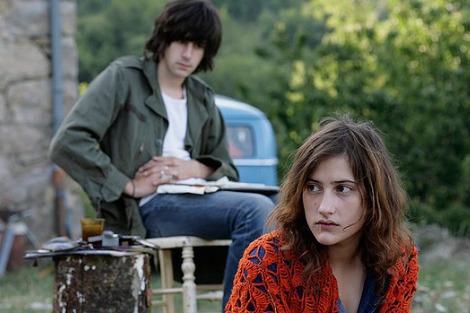Keywords: Olivier Assayas
-

ARTS AND CULTURE
- Tim Kroenert
- 19 April 2017
1 Comment
Cynical about the prospect of any kind of afterlife, Maureen nonetheless spends time holed up in an old Parisian mansion, trying to commune with the spirit of her dead twin brother. She is employed by a difficult and demanding fashion model as a personal shopper; literally, she spends her paid working days buying clothes, shoes and jewellery for someone else. The juxtaposition of the pure materialistic focus of this work, and her doubt-riven incursions into the spiritual realm, is intriguing.
READ MORE 
-

ARTS AND CULTURE
- Tim Kroenert
- 05 August 2016
The interviewees regard Vertigo with awe, waxing lyrical about its psychosexual subtext; but not a word is said about the inherent misogyny of a film that is explicitly about a man's objectification of a woman. The film's most interesting segment however concerns the pre-eminence of guilt in Hitchcock's films, and the role it plays in shaping human activity. This, says Martin Scorsese (a filmmaker similarly preoccupied with guilt and sin), may define Hitchcock as an essentially Catholic filmmaker.
READ MORE 
-

ARTS AND CULTURE
- Tim Kroenert
- 17 December 2015
2 Comments
From the drama-filled mind of a pre-teen girl to the homes of former Indonesian death-squad members; from a day in the life of a transgender sex-worker to a grim and sublime new rendition of one of Shakespeare's most famous plays; from one actor's immense ego to another's fading relevance to an allegedly doomed writer's captivating self-effacement, Eureka Street's resident film buff Tim Kroenert revisits the characters and themes of some of the best and most conversation-worthy films of 2015.
READ MORE 
-

ARTS AND CULTURE
Famous actor Maria Enders finds herself cast in a new production of the play that kick-started her career. The play explores the tempestuous relationship between a businesswoman, Helena, and her much younger assistant, Sigrid. Back then, Maria played Sigrid. Now, she is to portray the older woman. Through her engagement with the material she probes her own ambivalence and insecurities about getting older.
READ MORE 
-

ARTS AND CULTURE
- Tim Kroenert
- 05 December 2013
As high school students they are too young to have begun the cultural revolution. But they try to fan its flames and bring its ideals to bear. Their idealism is at times tested against the cynicism or jaded moral certitude of older revolutionaries, one of whom chastises them for entertaining legitimate doubts about the means employed by Mao Zedong. There clearly is a gulf between healthy skepticism and wilful blindness.
READ MORE